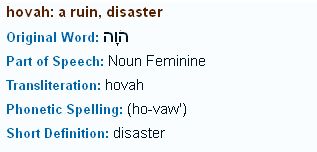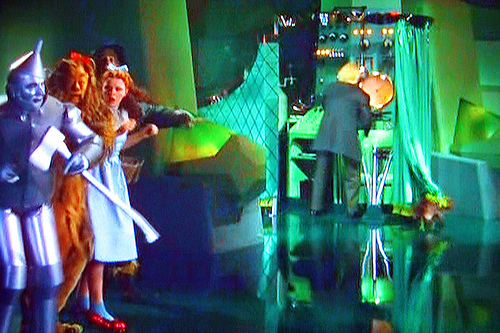The reason why I made this thread was because the Watchtower taught me as a kid that the name Jehovah was the correct way to say God's name. I want to dispel that. They taught me that it was SO correct that it identified the Watchtower as the one true religion because they used the name the most. Constantly, I was reminded that the theme of the Bible was in essence the vindication of Jehovah's actual name. We held the only standard that counted. The more I look into the subject of the Watchtower's pronunciation of YHWH the more I am convinced that it's a profound decpetion, one that actually stems beyond the Watchtower.
Wikipedia says that Latin is "an Italic language originally spoken in Latium and Ancient Rome." Rome had a chief deity that was called Jupiter:
In ancient Roman religion and myth, Jupiter ( Latin : Iuppiter) or Jove is the king of the gods and the god of sky and thunder . Jupiter was the chief deity of Roman state religion throughout the Republican and Imperial eras, until the Empire came under Christian rule. In Roman mythology, he negotiates with Numa Pompilius, the second king of Rome, to establish principles of Roman religion such as sacrifice.
So you could call Jupiter the "Jehovah" of ancient Rome. The empire that allegedly crucified the Son of God. The Watchtower says that God's official name required restoration into the modern world. They say a group of Jews had the name removed from the original manuscripts of the Christian Greek Scriptures effectively hiding the true name of God. First off with that theory, if the Jews say that the Tetragrammaton shouldn't be prenounced I would tend to just default to their opinion since they were the ones that wrote the Torah which is the originator of the word. Secondly, how could it be possible that God was powerless to stop a group of rogue Jews? If such a deed was committed it would most certainly be done in the name of Satan and therefore that would mean God is powerless to malevolent forces. The Watchtower's explanation reeks of deception.
The J seems to me to be a reference to the Roman Chief God Jupiter which would make sense that such a fact would need to be concealed if you wanted to come across as a Christian group. As a side note it could be said that the Nazi's were interested in bringing back the Roman Empire as well:
Nazi archaeology refers to the movement led by various Nazi leaders, archaeologists, and other scholars, such as Adolf Hitler and Heinrich Himmler, to research the German past in order to strengthen nationalism. This movement, which set out to bring the glory of the Roman Empire back to Germany, was based on ideas of Tacitus' Germania.
So why did the Jews say the Tetragrammaton was not to be prenounced? The answer might be in the etymology of the Tetragrammaton itself. Here is the Tetragrammaton word from Strongs:

It states the phonetic spelling as "yeh-ho-vaw." The language is read from right to left so the "Yod" character is the first one which is where they are getting the "Yeh" sound in their phonetics, but where are they getting the "ho-vaw" from? There is a word in the Hebrew Scriptures that is prenounced "ho-vaw", but it's only found 3 times.

As you can see in this word the Hebrew letters and their Masorete vowel points are identical to Tetragrammaton, but the "Yod" character is not present. This word is located in only two scriptures in the Hebrew Bible. First, in Isaiah:
vs 11: Disaster(ho-vaw) will come upon you,
and you will not know how to conjure it away.
A calamity will fall upon you
that you cannot ward off with a ransom;
a catastrophe you cannot foresee
will suddenly come upon you.
And Ezekiel:
vs 26: Calamity (ho-vaw) upon calamity (ho-vah) will come,
and rumor upon rumor.
They will go searching for a vision from the prophet,
priestly instruction in the law will cease,
the counsel of the elders will come to an end.
Both instances show judgement of sin with ruin, disaster suffering and calamity. The Strong's definition says that this word "ho-vah" means "ruin", but given the context of which they are found in the Hebrew Bible the connotation, to me, is certainly one of bringing justice to ones deserving pain and suffering.
Now the Watchtower says that Jews "took Jehovah" out of the Christian Greek Scriptures, or whatever, but it appears the opposite is true. They had a very good reason to make sure we had manuscripts that lacked the name. Why? Because that name is connected to the old world of pain and suffering which is NOT Christ-like. Frankly to put YHWH into a book like the Book of Revlation is an extreme form of heresy because it's ignoring the change in direction that happened with the advent of Christ. We are supposed to beat our swords into plowshears and the Tetragrammaton is a word from a world of chaos and war. Something that is passing away.
The chinese have an old proverb that goes "before the beginning of great brilliance, there must be chaos." If such is true the farther we go back in time the more chaotic we are and the further we go in time the more brilliant we become. You could say that YHWH is Chaos and Christ is Order. You don't worship Chaos because it's only a temporary thing, but since Chaos is a necessary evil, it's going to want to live forever and need vanquishing.
The context in Isaiah where "ho-vaw" is located is very telling:
vs 10: You have trusted in your wickedness
and have said, ‘No one sees me.’
Your wisdom and knowledge mislead you
when you say to yourself,
‘I am, and there is none besides me.’
Evolution proves that Chaos created the world that we live in, but that world passes away, we know it does. The Watchtower wants to say that things are getting worse, but like the verse says "we can see you."

-Sab



